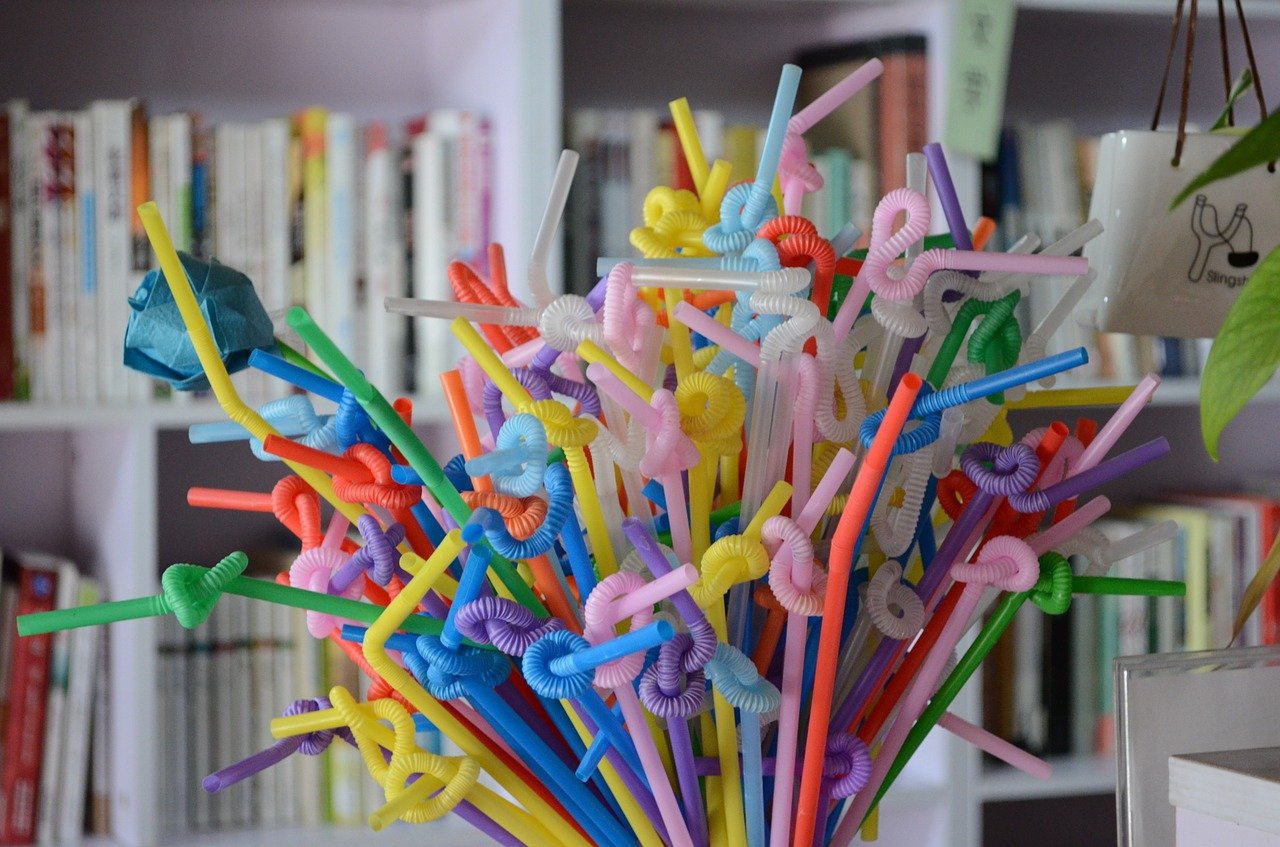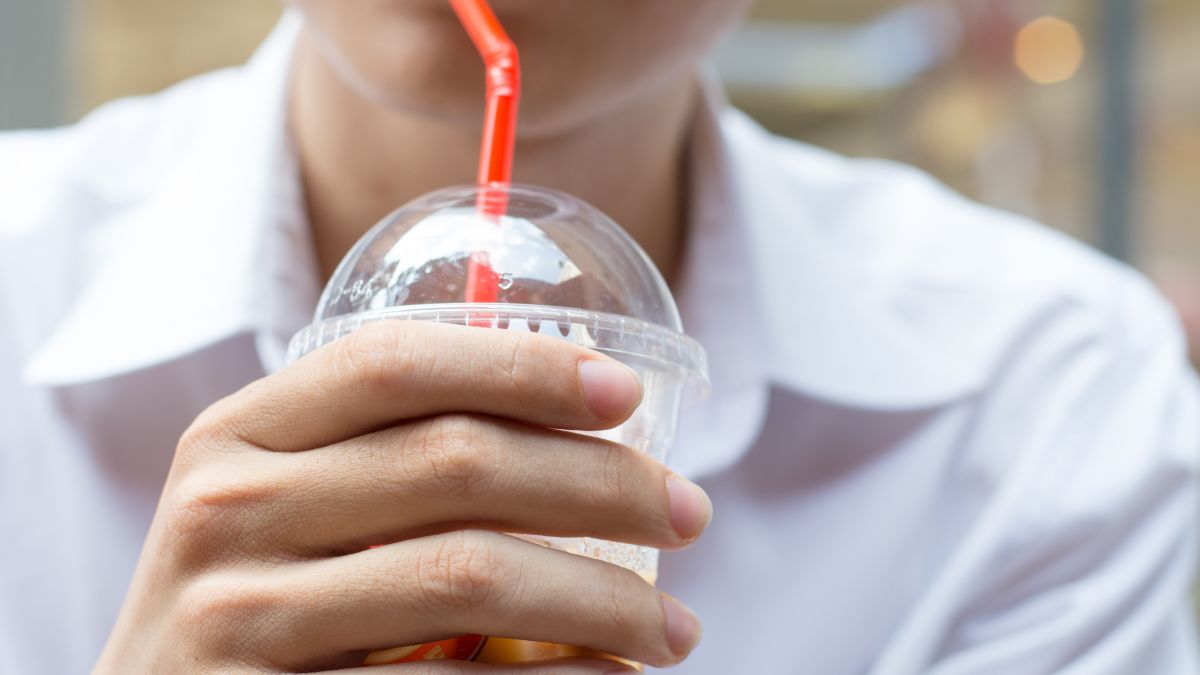Plastics add convenience and utility to all our lives, but not all plastics are created equal. The most harmful of the lot tends to be disposable, single-use plastics, few of which are more insidious than the straw. These days, there is an emerging bounty of alternatives to single-use plastic straws in a growing bid to reduce the impact of plastic waste on Mother Earth.

The straw has been a staple of human life since the age of the Sumerians, over 5,000 years ago. Today’s version, the disposable plastic straw, has been around for decades, coming into wide-scale mass production in the years following World War II. Straight, curly, striped, bendy, coloured, or clear… to say the straw is a ubiquitous fixture in contemporary life would be an understatement. One market research group estimated in 2017 that some 390 million plastic straws were used every day in the United States alone. Other daily estimates range from 170 million to 500 million. All of these figures seem rather outlandish, frankly, but if the usage were even a fraction of the lowest estimate, say one-quarter, that would still be an immense pile of straws, most of which are discarded after just one use – or in some cases, after no use at all.

And do most of us really even need a straw? They make sense for young children, certainly for some specific beverages, and of course are a necessity for those who are handicapped or infirm. For most healthy adults, however, a straw is little more than an unnecessary convenience.
GREENWASHING OR GATEWAY?
Some critics contend that the growing number of businesses and communities banning or restricting single-use plastic straws are really not accomplishing much, since by volume, disposable polypropylene straws make up only a small fraction of the plastic waste found in the ocean. (Studies suggest that plastic straws comprise less than 10% of all plastic waste overall, and perhaps only 1% of all such waste that ends up in the ocean.) Indeed, we produce and use far more plastic bags and plastic bottles on a daily basis. Banning straws and eliminating the use of these particular plastic offenders from our lives, they say, really just allows us to feel good about ourselves for a moment while not really addressing the true catastrophe of plastic pollution the planet is facing.
That may be, but it’s not because straws are the most common form of plastic litter that they became the poster child for the anti-plastic crowd. It’s simply because they perfectly represent the worst kind of pollution. They are, by design, made to be used one time to facilitate a few minutes of ‘convenience’ and then mindlessly discarded, where they will pollute the environment for decades, if not centuries.
Again, this is not to malign the small percentage of those in society who genuinely need the use of a straw. This is aimed at the vast majority of us who do not.

So once people feel a bit of ‘straw shame’ and look at the plastic straw and realise the grim environmental repercussions that arise from millions of these items flooding into the landfills and waterways of the world on a daily basis, that straw becomes a ‘gateway plastic’ wake-up call. People are subsequently more likely to be attuned to the similar impact of single-use plastic bags, water bottles, unnecessary packaging material, disposable cutlery, and so on. The straw is not the greatest offender of plastic detritus, but as an unelected ‘representative’ of such waste, it’s common enough and familiar enough to perhaps be a catalyst to a better awareness of the harm we are doing with our boundless consumption and love of disposable convenience.
MAKING A CHANGE
While eliminating plastic straws probably won’t reverse climate change or save endangered species, it’s a good starting place to improve awareness and spur environmental action. What’s more, it’s an easy change to make… and it’s getting easier with every passing year.
Not too long ago, reusable stainless steel and glass straws and disposable paper straws were among the only really widely available options if you wanted to forego plastic but keep the straw. Now, they’re but three of dozens of alternatives. Paper straws, while certainly more degradable than their polypropylene counterparts, haven’t always necessarily been the best alternative. Critics say they have as much of a carbon footprint in their manufacturing and users don’t like that they become limp and soggy fairly quickly. The paper straws of today are arguably better than those from just a few years ago, but the constellation of other options has exploded at the same time.
For reusable straws, stainless steel and glass still reign supreme, though they’re not universally beloved, and have even caused injury on rare occasions. Bamboo is an excellent sustainable choice for a reusable straw, though it will not have as long a lifespan as the glass and steel choices. Another good reusable choice is silicone, which are good for thick drinks and bubble-type drinks, too, as they can be made in large diameter sizes. They’re robust, reusable, and dishwasher-safe, so they’ll last for years. The best single-use options (or a few uses in some instances), meanwhile, include straws made from rice, tapioca, grass, and other plants and grains.

In Pavilion KL, an eco-friendly restaurant called Element Fresh serves its smoothies with a straw made from rice flour. Robust, thick-walled, and 100% natural, these straws are technically edible, though having used one myself, I probably wouldn’t recommend taking an enthusiastic bite. Much more importantly, they’re purely organic in composition, so will break down quickly and harmlessly in the environment. These rice straws are available for purchase on local e-commerce sites like Lazada and Shopee, and are very affordable, with packs of 100 selling for just RM10 or less. With rice the primary staple in Asia, and thus widely available, the manufacturing of these straws has ramped up significantly in the region, with Vietnam emerging as a key player in the burgeoning rice straw industry.
And it’s not just rice… there are edible straws made from seaweed and pasta, too! And in recent years, some tropical island resorts have adopted locally sourced straws made from hollow papaya stems… and there’s also the straw’s humble origin (and namesake) which is making a small comeback. That’s right, the straw straw, essentially a hollow grain stalk. Straws made from plant stems and grain stalks are certainly not edible, but let’s face it, you can’t get much more natural!

Finally, there are manufactured straws which certainly look plastic, but plainly say they’re not. The idea is to make them out of materials which break down more safely and easily than traditional plastic. Critics aren’t necessarily sold on these straws, with some saying it’s just substituting one man-made chemical compound for another.
Of course, the cheapest, easiest, and most readily available alternative to the plastic straw is no straw at all. So if you don’t need that straw, don’t be shy about refusing it or making a point to request “no straw” when placing your beverage order. It’s a small gesture, but as they say, every little bit helps.
"ExpatGo welcomes and encourages comments, input, and divergent opinions. However, we kindly request that you use suitable language in your comments, and refrain from any sort of personal attack, hate speech, or disparaging rhetoric. Comments not in line with this are subject to removal from the site. "





















